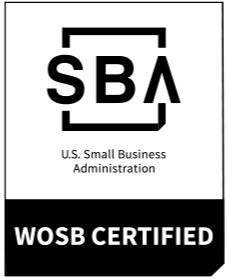How Values-Based Leadership Drives Performance
By definition, values-based organizations are guided by a set of core values. These values are the foundation of why the organization exists and what purpose it serves. While many organizations claim to be values-based, there is often a disconnect between what they say and what they do.
Perhaps the most notorious example of this comes from the early 2000s Enron scandal, which left the company bankrupt, thousands of employees out of work, and leadership imprisoned on charges including money laundering and fraud. Leading up to the scandal, what were Enron’s public values?
Communication. Respect. Integrity. Excellence.
A more recent example comes from September 2016, when Wells Fargo was accused of—and fined $185 million for—opening millions of fake customer accounts and charging them fees to hit their targets. While these fraudulent activities were taking place, the Wells Fargo Vision & Values statement read:
Our vision has nothing to do with transactions, pushing products, or getting bigger for the sake of bigness. It’s about building lifelong relationships one customer at a time.
While the world has undoubtedly learned from these two substantial public missteps, this type of disconnect still happens today on a small and large scale. Without constant vigilance, no organization is safe from falling into this trap. For organizations to examine whether they are, or can become, truly values-based, where do they begin? It starts with leadership.
Values-based leaders embody the core values of their organization.
The core values of any organization must underlie every decision that its leader makes. They must inform how the leader interacts with their team, employees, and customers. They must even dictate why they hire someone, how they measure performance, and the criteria for offering a promotion or bonus. When done correctly, these values will trickle down through the executive team, management, and the organization.
Robert McDonald, a former CEO of Procter and Gamble and the 8th Secretary of the Department of Veterans Affairs, believes this behavior cannot stop at the workplace, but must continue into your everyday life. In a conversation on the podcast Brilliant in 20, he said, “It’s my experience that you really can’t separate the values you follow when you’re in the office and the values you follow when you’re outside the office. I don’t know of a high-performance organization or leaders in a high-performance organization that can compartmentalize values across environments.”
Once a leader’s values align with those of their organization, they will foster trust between themselves and their employees, ultimately boosting performance. This type of leadership takes courage, vulnerability, and a strong sense of self-awareness.
Values-based leaders emphasize organizational culture.
Often, leaders are so focused on the organizational culture they want that they overlook what culture they currently have. “As leaders, we don’t work hard enough, long enough, on culture,” says McDonald, “and culture may be the most important part of developing a high-performance organization.”
Why is culture so important? Today, more than ever, people seek employment with organizations whose beliefs align with their own. The first indication of an organization’s values is its workplace culture.
To attract the right people that will enhance, rather than hinder, the culture they want to thrive, leaders must work tirelessly to align that culture to their core values. When they accomplish this, employee engagement and initiative will flourish. Failing to do so can cost the organization time and resources.
Values-based leaders are transparent and consistent in their communication.
When leaders are transparent with their employees about the organization’s values, employees will feel more secure and more empowered. The easiest way to do this is for leaders to be clear and consistent in their communication. When it comes to an organization’s core values, they must never contradict themselves.
McDonald notes, “People like to work in organizations where outcomes are predictable, and it’s the values of the organization, and the strength of those values, that leads to predictable outcomes.” He continues, “If I was clear that I was going to lead from a certain set of values and someone saw me and thought that I wasn’t doing that, they could call me on that, and I would want them to call me on that.”
_____________________________________
Emerald One seeks to work with values-based, mission-driven leaders and organizations because we understand the importance of making positive change. Email us to learn more about how we can help transform your organization’s digital strategy and unlock your team’s true potential.
You can listen to the full interview referenced in this blog by subscribing to our Podcast, Brilliant in 20, produced in partnership with our friends at FedScoop. Subscribe for free on Apple Podcasts or Soundcloud.







